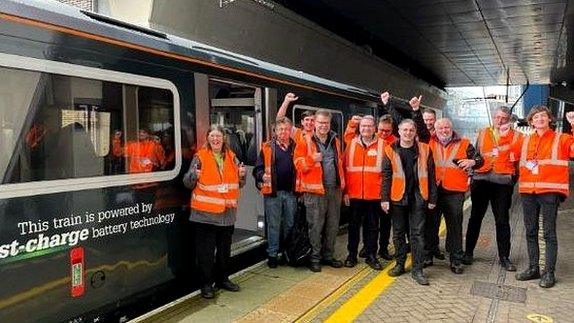Battery-powered train breaks distance record
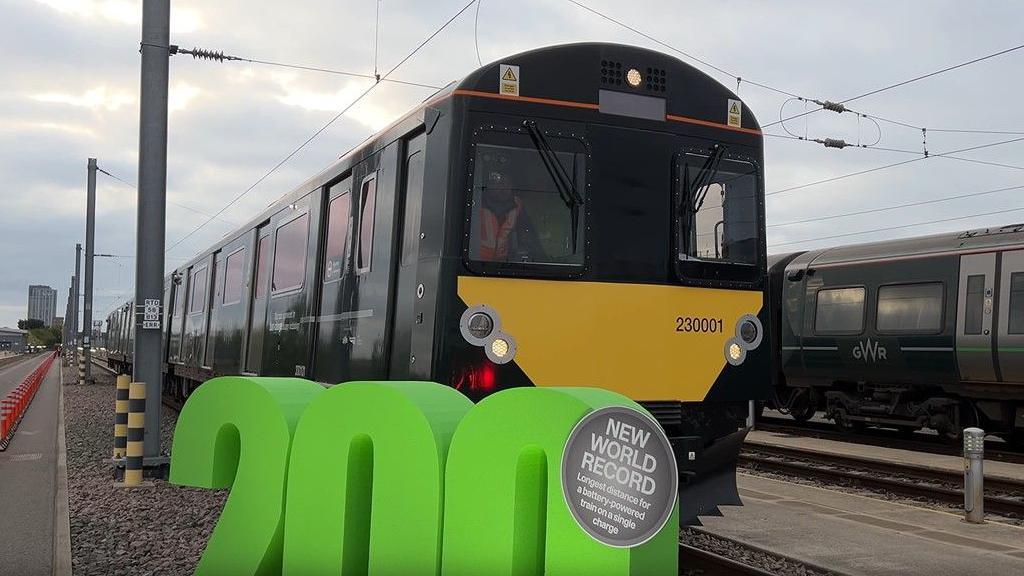
The battery-powered train completed a return trip from Reading via London Paddington and Oxford
- Published
A battery-powered train has broken the world record for the longest railway journey on a single charge.
The Great Western Railway (GWR) train - a specially adapted former District Line train - travelled overnight along a 200-mile (322km) route from Reading and back again, via London Paddington and Oxford.
It reached 140 miles (225km), breaking the record on Brunel Maidenhead Bridge at about 04:00 BST.
The previous record of 139 miles (224km) was set by German train company Stadler Deutschland in Berlin on 10 December 2021.
Watch: Engineers celebrate the moment the distance record is broken
The Rail Performance Society was on board to verify the record attempt.
Vice chairman Nigel Smedley said: "We can confirm that, subject to final checks, the Great Western Railway Class 230 train travelled 200 miles on a return journey from Reading Train Care Depot without charging its batteries from any external energy source."
GWR made the attempt to mark the 200th anniversary of the birth of the railways.
Engineering director Simon Green said: "Today's record attempt has been a bit of fun, but it also underlines a serious point: investment in battery technology is essential as we look to replace our ageing diesel fleet."

GWR engineering director Simon Green said the team was "delighted to set a new world record"
The train had six batteries and during the journey only five were used, the train firm said.
At the end of the journey GWR said there was a remaining battery charge of 22% which it estimated would have allowed the train to travel about a further 58 miles (93km).
GWR is exploring if battery trains could replace its diesel fleet as it goes out of service over the next seven to 10 years.
Get in touch
Do you have a story BBC Berkshire should cover?
You can follow BBC Berkshire on Facebook, external, X, external, or Instagram, external.
Related topics
- Published19 August
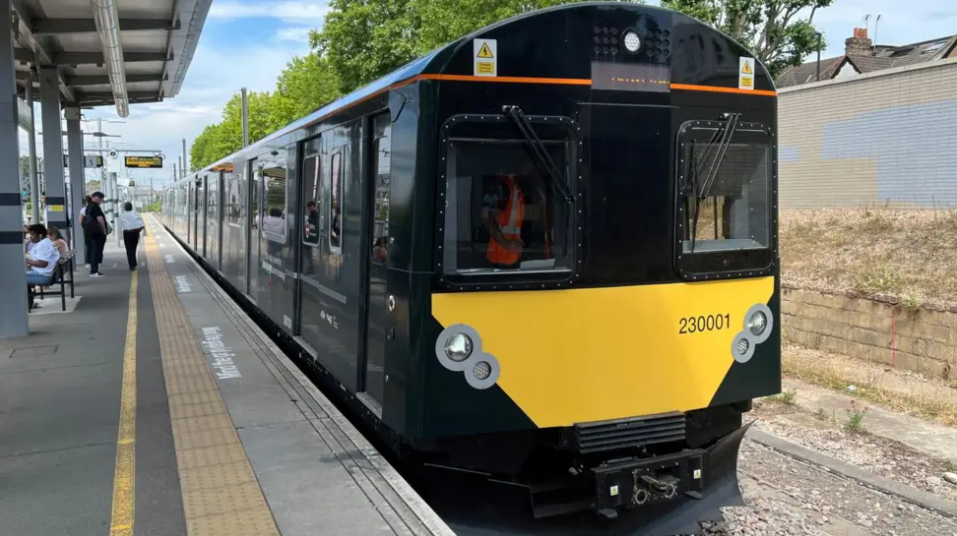
- Published2 July
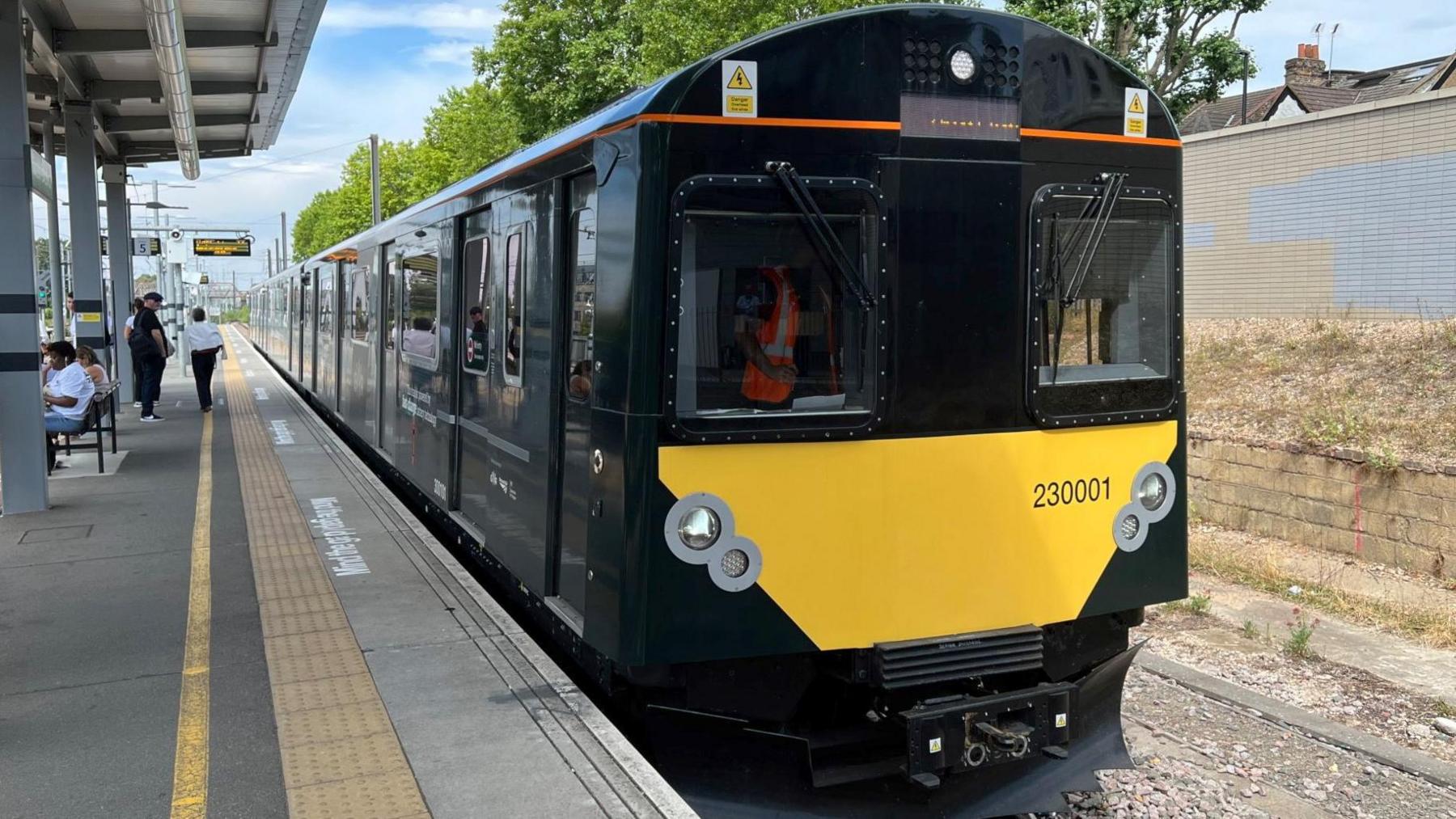
- Published12 November 2024
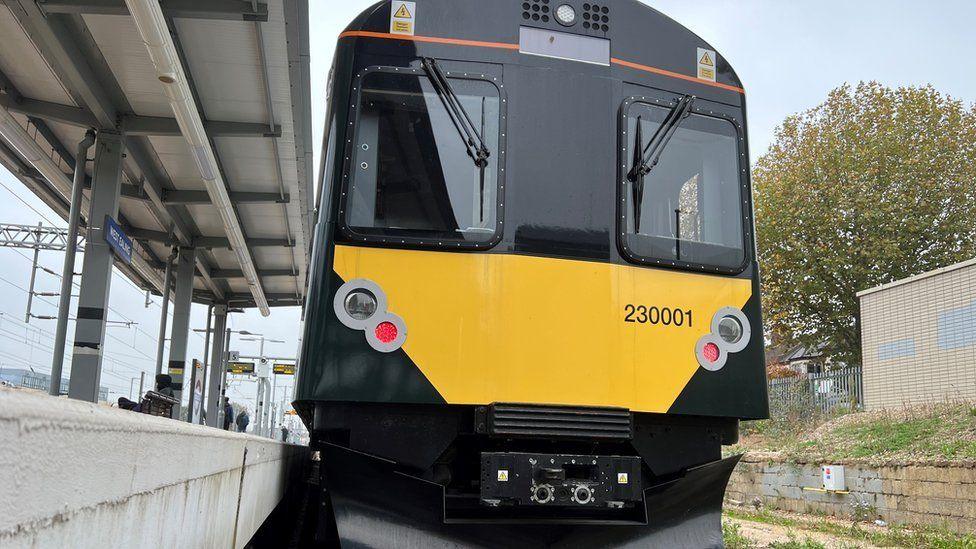
- Published11 November 2024
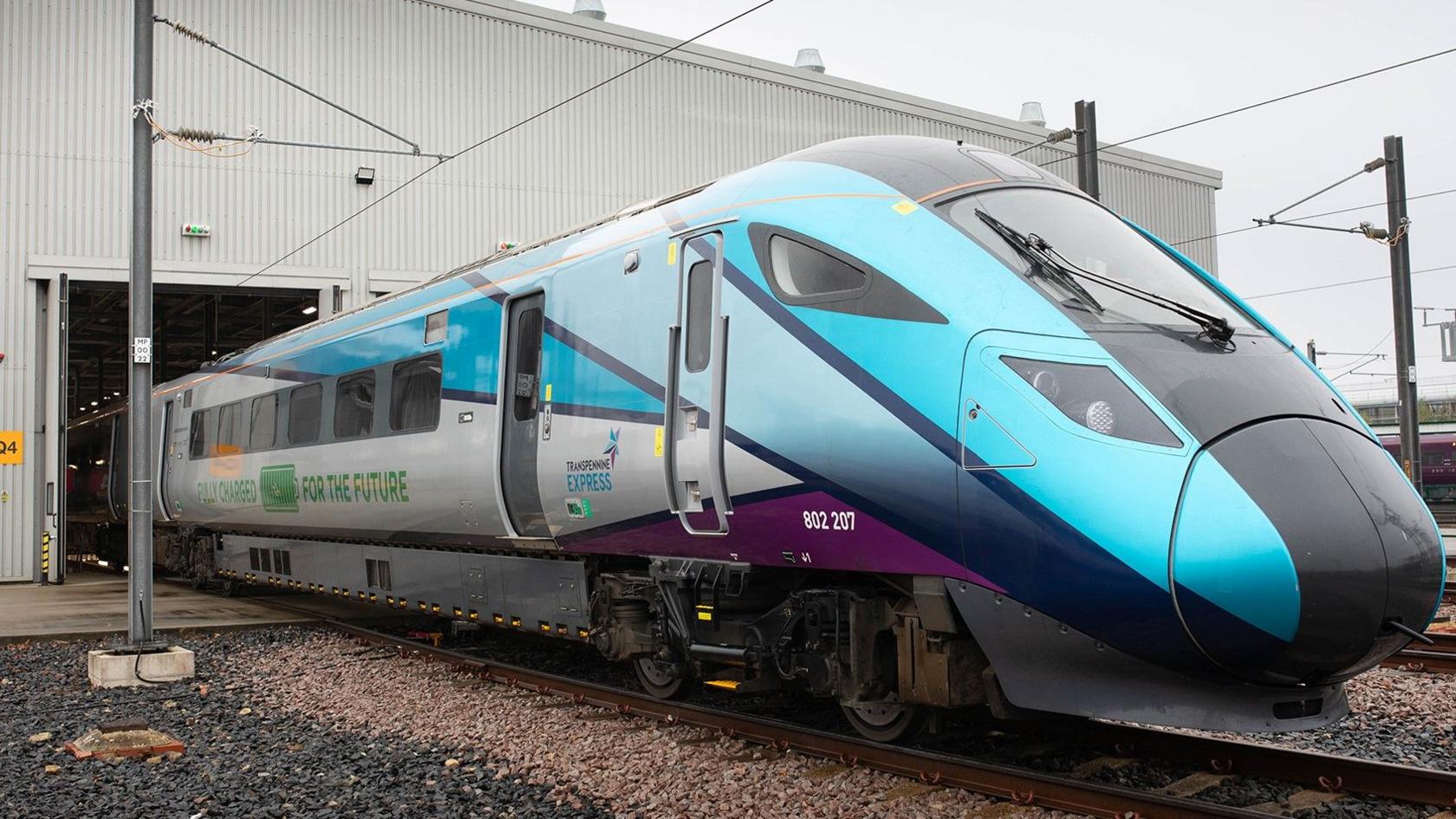
- Published19 February 2024
